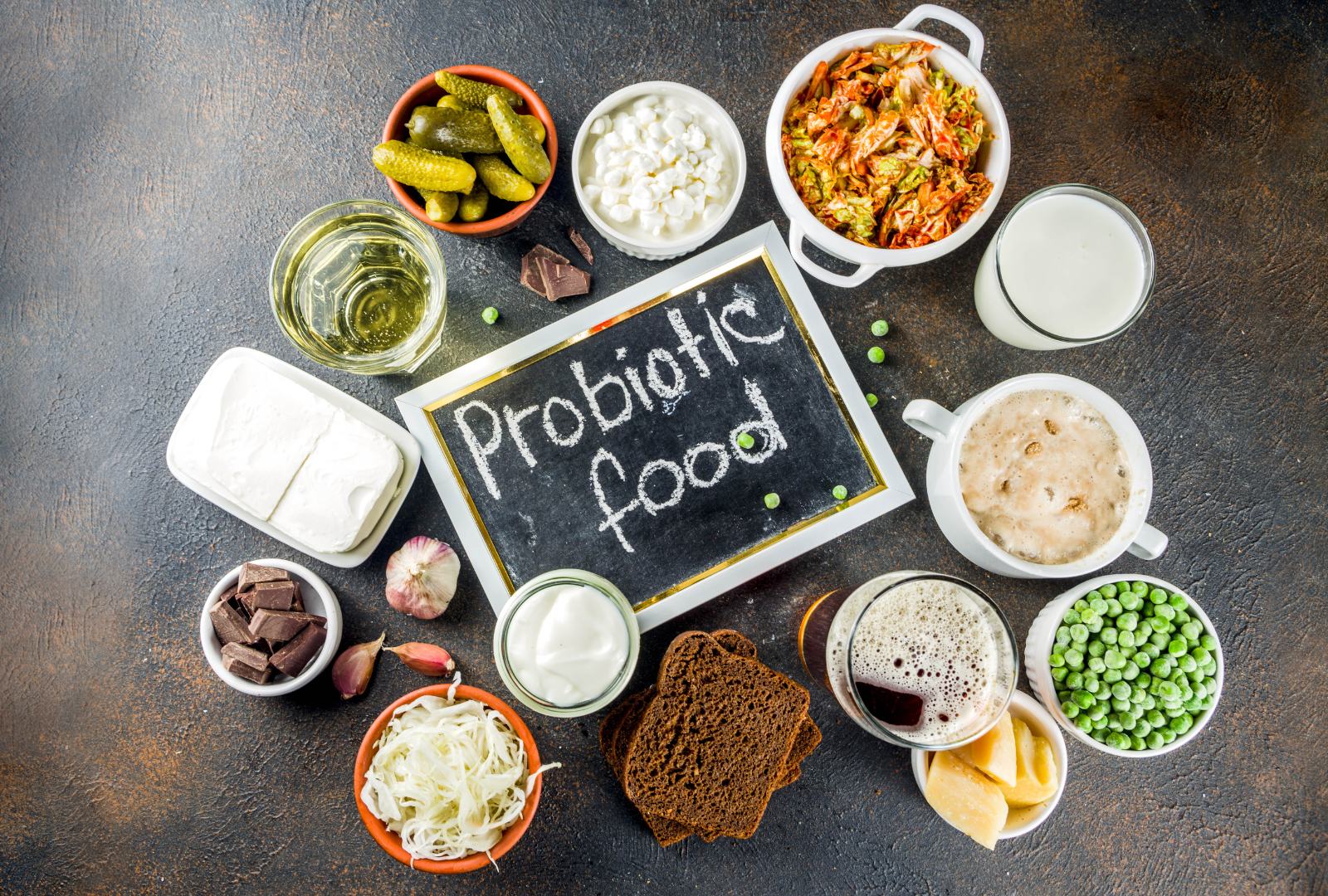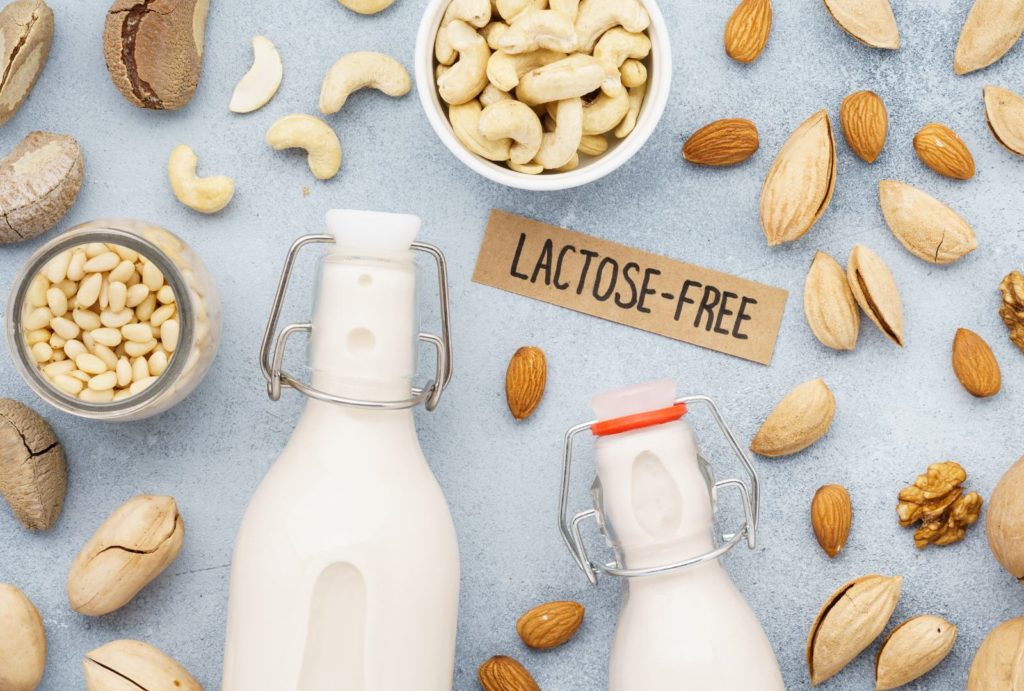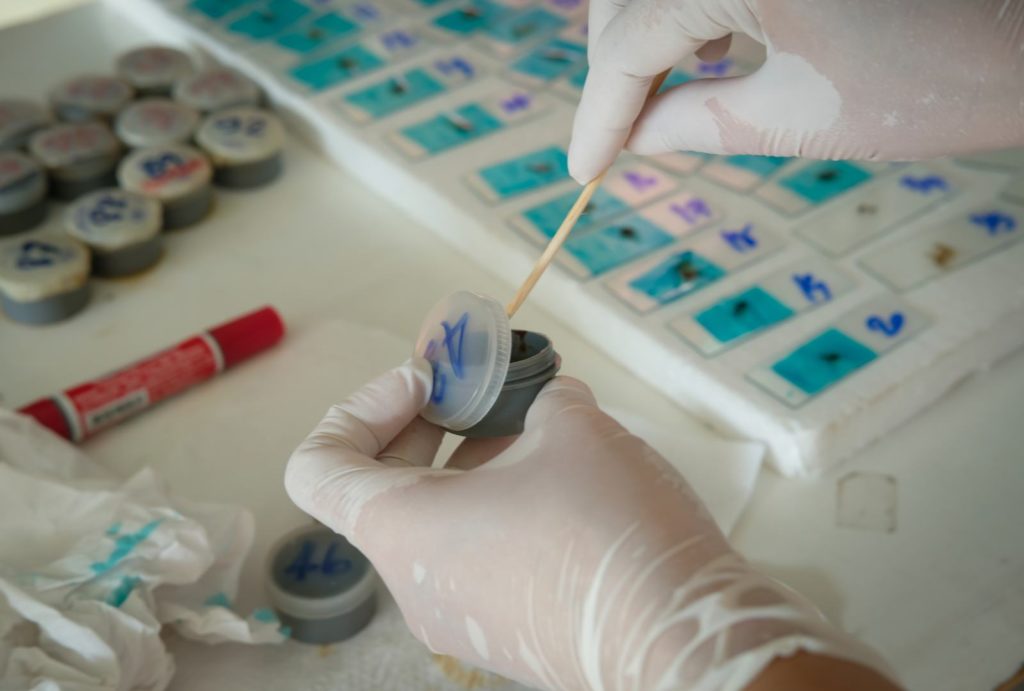Akkermansia muciniphila is a type of bacteria that lives quietly in your intestines, but it can have a big impact on weight loss.
You can think of it as one of the key players in your gut’s community.
Even though this microbe doesn’t call attention to itself, it can affect things like how fast your body uses energy and when you feel hungry.
Let’s find out how it works and why a healthier gut can support more stable weight results.

How Gut Bacteria Influence Your Overall Weight Journey
The gut microbiome is the mix of tiny organisms living in your digestive system.
These organisms help break down food and make important vitamins. Some kinds of bacteria can cause more inflammation or store extra fat, while others make you feel fuller and help burn calories.
When these bacteria are in balance, you often have more energy, better digestion, and a healthier relationship with food.

The Unsung Hero: What Makes Akkermansia Stand Out
Akkermansia muciniphila helps protect the lining of your intestines. First discovered in 2004, the research and attention on this unsung hero has been increasing since then and we now recognize it as one of the top 20 most common bacteria in the gut.
It lives in the mucus that lines the gut as well as feeds on it. This might seem strange, but having a healthy gut mucus helps build a stronger barrier against bad germs. Its liking for mucus makes it different from many other gut bacteria and is important for understanding Akkermansia. Akkermansia produces short-chain fatty acids from the mucus it feeds off of. This in turn stimulates the gut to produce more mucus, protecting the intestinal lining and providing more energy for the gut microbiome, as well as acting as a support for the immune system.
Striking the right balance of Akkermansia in the gut is crucial. More isn’t necessarily better, as too much will cause a thinning of the mucus layer while too much will also affect the integrity of the mucus lining the intestines. Keep this in mind as we explore the benefits of Akkermansia and how to test for it.
This bacterium has also been linked to better control of blood sugar, less weight gain, and a stronger metabolism.
Why Akkermansia Thrives in a Healthy Gut Environment
Akkermansia grows best when your gut is balanced, diverse, and fed with plenty of fiber.
It’s natural that this bacterium flourishes next to other good microbes. When your gut has many types of friendly bacteria, there’s less room for the bad ones.
Drinking enough water, eating enough fiber, and managing stress also help it grow.
The Surprising Connection Between Akkermansia and Metabolic Rate
Research shows that people with higher levels of Akkermansia often burn calories a bit faster.
This means your body might use energy more efficiently, which can help you lose weight.
It isn’t a magic solution, but it may make a real difference if you also lead a balanced life with good food and exercise.

Defining Microbial Balance for Steady Weight Management
Microbial balance in the gut means that no single type of bacteria takes over.
This balance helps your body avoid storing too much fat or slowing down weight loss. Once your gut is more harmonious, many people notice fewer food cravings and more consistent energy.
Small changes in your gut bacteria can lead to big results over time.
How to Increase Akkermansia muciniphila
Imagine your gut as a garden.
To help Akkermansia grow, you need the right foods:
- Soluble fiber from things like oats, flaxseeds, and chia seeds can help.
- Prebiotics – onions, asparagus, bananas, legumes.
- Polyphenols found in cranberries, blueberries, pomegranates, green tea, and cacao can make your gut friendlier for Akkermansia.
Why Diet Alone May Not Fully Support Akkermansia Growth
Diet is important, but it’s not the only factor.
If you have a lot of stress, don’t sleep well, or have ongoing inflammation, then Akkermansia levels may not improve. Even a great meal plan can only do so much if your body is overwhelmed by stress hormones and poor sleep.
Fixing these hidden problems can make dietary changes work better.

How Lifestyle Stress Impacts Akkermansia and Hunger Signals
Stress can make it harder for good bacteria to thrive. High levels of cortisol may disturb Akkermansia and other helpful microbes.
When that happens, hunger hormones like ghrelin can spike, causing cravings or overeating. Relaxing activities, such as easy yoga, walks in nature, or meditation, can help balance out these signals.
The Science Behind Akkermansia: Key Research Findings on Weight Loss
Some studies show that people who have more Akkermansia tend to have better insulin sensitivity, healthier blood sugar, and lower inflammation.
Scientists have even tested special supplements to raise Akkermansia levels, seeing slight but promising improvements in body weight and fat.
These studies suggest Akkermansia might be an important helper in managing weight.

How to Increase Akkermansia muciniphila in the Gut
Steady effort is the key to increasing Akkermansia.
Here’s a step-by-step approach I recommend if you’re looking to support healthy levels of Akkermansia in your gut:
1. Increase Fiber Gradually:
Start by adding small amounts of high-fiber foods—like beans, oats, or leafy greens—to your meals. Let your body adjust slowly to the extra fiber. You can begin with half a cup of beans or an extra handful of vegetables a day and increase from there. This gentle approach helps you avoid uncomfortable bloating or gas and keeps the changes sustainable.
2. Enjoy Prebiotic-Rich Foods:
Many plant-based foods, as I talked about in this blog post, have prebiotics that feed the friendly microbes. Putting them in soups, salads, or stir-fries can boost the variety of bacteria in your gut.
Aim to include onions, garlic, leeks, and asparagus. These contain prebiotic fibers that feed beneficial bacteria, including Akkermansia. If you’re sensitive to these foods, start with small amounts and build up your tolerance over time or look at supplementing with prebiotics.
Switching between different prebiotic foods keeps your diet interesting and your gut well-fed.
3. Focus on Healthy Fats:
Foods like avocados, olives, olive oil, nuts, and seeds can help create a supportive environment in your gut.
Incorporate a drizzle of olive oil on salads or use a quarter of an avocado in your smoothie for extra creaminess and gut-friendly fats.
4. Use Moderate Portions of Fermented Foods:
Items like plain yogurt (preferably unsweetened), kefir, sauerkraut, and kimchi can introduce beneficial microorganisms into your gut ecosystem. Begin with just a spoonful or two if you’re new to fermented foods, then gradually increase as your gut adapts.
5. Include a Variety of Plant Foods:
Diversity in fruits, vegetables, whole grains, and legumes helps support a wide range of beneficial gut bacteria. Aim for a colourful plate—each color typically represents different nutrients and types of fiber.
6. Stay Well-Hydrated:
Drink enough water throughout the day to help fiber do its job effectively and keep the digestive system running smoothly. Hydration supports the mucus layer in your gut, which Akkermansia thrives on.
7. Consider Polyphenol-Rich Foods:
Berries, green tea, cocoa, and some herbs are high in polyphenols, which may help foster beneficial gut microbes. Enjoy a cup of green tea or a small serving of berries daily to reap these benefits.
8. Mind Your Overall Eating Pattern:
Aim for balanced meals with protein, fiber, and healthy fats to stabilize your blood sugar and create a favorable environment for gut bacteria. Overly processed foods and high sugar intake can disrupt the gut microbiome, so keep those in moderation.
Sticking to a regular eating pattern will help your gut find its rhythm.
Intermittent fasting will also help to support the gut and give it a much needed break. Aim to do alternate days of intermittent fasting or a time-restricted eating window like 8 hours per day with 16 hours of fasting.
9. Stay Active & Manage Stress:
Regular physical activity and stress management techniques like mindfulness, yoga, or walks can support a healthy gut. Stress hormones can shift the balance of gut bacteria, so any practice that helps you relax is a plus.
Little acts of self-care—like keeping a sleep routine—can have big effects over time.
Each person’s gut is different, so it may take some trial and error to find the foods that work best for you.

Why Akkermansia Cultivation Could Improve Insulin Sensitivity
Research shows Akkermansia plays a key role in glucose metabolism. When this bacterium is present in healthy amounts, it helps maintain the gut’s protective barrier.
This barrier prevents harmful substances from triggering inflammation that could disrupt insulin function. With reduced inflammation, insulin can work more efficiently.
The result?
More stable blood sugar levels and sustained energy throughout the day.
The Role of Probiotics: Potential Allies to Strengthen Akkermansia
There are two options for how to increase your Akkermansia muciniphilia levels:
- A specific probiotic
- Taking green tea and cranberry extract to support the gut health needed for Akkermansia to flourish.
You won’t usually find Akkermansia as a common probiotic, but there are a few that I like:
Pendulum live Akkermansia probiotic
These two are what I’d recommend but more products are becoming available.
Other probiotics may also help your gut environment, which can in turn support Akkermansia.
Strains like Lactobacillus and Bifidobacterium can lower inflammation and create the right conditions for Akkermansia to grow.
A targeted plan might involve prebiotics, probiotics, and diet tweaks that encourage all the helpful microbes to work together.

What Happens When Akkermansia Counts Are Low?
If this microbe’s levels drop, your gut lining can become weaker, raising inflammation risks. Ultimately this leads to leaky gut when the lining is no longer strong, leading to an acute immune response as the gut becomes more susceptible to pathogens.
In clients, a regular pattern that I’ve seen is low or virtually zero Akkermansia levels being associated with weight gain and an inability to lose weight. It’s shocking to me that Akkermansia can actually be very near to zero on a stool test result. It’s a clear sign that there’s an issue with the gut microbiome and improvements should be made through the strategies I’ve mentioned in the steps to increasing Akkermansia.
If your Akkermansia levels are low you might also see slow weight loss, strong cravings, or random energy dips. Adjusting your diet and habits can rebuild a strong population of helpful bacteria.
Now, let’s look at how to test Akkermansia levels and associated effects on gut health.
Assessing Gut Health: Tests and Markers to Watch
Tests that look at short-chain fatty acids and certain bacteria levels can show how healthy your gut is. Blood tests for things like C-reactive protein (CRP) or fasting insulin might reveal inflammation or blood sugar issues.
Tracking these markers can help you decide on the next steps.
Use Stool Testing to Identify Akkermansia Levels
In particular, a complete stool test can show exactly how much Akkermansia you have. I use Nordic Labs for stool testing and can help to arrange testing and analyze the results.
Stool testing can also point out if there are too many harmful bacteria or not enough good ones. Having this information lets us plan your diet or take supplements that match your gut’s needs.
Warning Signs: When Imbalances May Hamper Weight Management Efforts
If you’re struggling with weight even though you eat well and move around, your gut might be out of balance.
Symptoms like bloating, bathroom changes, or strong sugar cravings can be hints that you have a gut issue.
Focusing on these problems from a gut-health angle can help solve hidden barriers.

How to Lower Akkermansia Muciniphila
Too much Akkermansia can also be an issue, as it may irritate your gut lining.
Cutting back on processed foods and sugary snacks may keep its growth in check.
Sometimes doctors suggest antimicrobial treatments to rebalance the gut, but only a professional can say if that’s needed and it’s best to avoid antimicrobial or antibiotic treatments whenever possible.
Long-Term Strategies for Nurturing a Diverse Microbiome
Over time, small habits—like eating more plants, managing stress, and having a regular bedtime and sleep schedule—can lead to a balanced gut that doesn’t easily get thrown off by outside pressures.
A stable microbiome can help control inflammation and keep your weight steady.
Beyond the Scale: The Impact of Gut Health on Energy and Mood
When your gut is healthy, your mood often improves.
That’s because the gut helps produce chemicals like serotonin. A strong gut can also lower inflammation, which can make you feel tired and foggy.
Better energy and mood often come along when your gut microbes are thriving.
How Empowering Gut Health Leads Sustainable Weight Results
Good health starts with paying attention to the tiny world inside you.
When Akkermansia and other helpful bacteria are happy, your body gets better at burning energy. Lower inflammation, steadier blood sugar, and a stronger gut barrier can all support healthy weight goals over the long run.
This approach goes beyond just looking at the scale. It’s about feeling vibrant, clear-headed, and confident in your body.
If you’re ready to embrace your health and make lasting lifestyle changes, schedule an appointment with me.
Sources:
- Chiantera, V., Laganà, A. S., Basciani, S., Nordio, M., & Bizzarri, M. (2023). A Critical Perspective on the Supplementation of Akkermansia muciniphila: Benefits and Harms. Life (Basel, Switzerland), 13(6), 1247. https://doi.org/10.3390/life13061247
- Zhou K. (2017). Strategies to promote abundance of Akkermansia muciniphila, an emerging probiotics in the gut, evidence from dietary intervention studies. Journal of functional foods, 33, 194–201. https://doi.org/10.1016/j.jff.2017.03.045

Ready to prioritize your gut health?
Let me guide you! I am specialized in helping clients understand their health through comprehensive tests like stool analysis.




